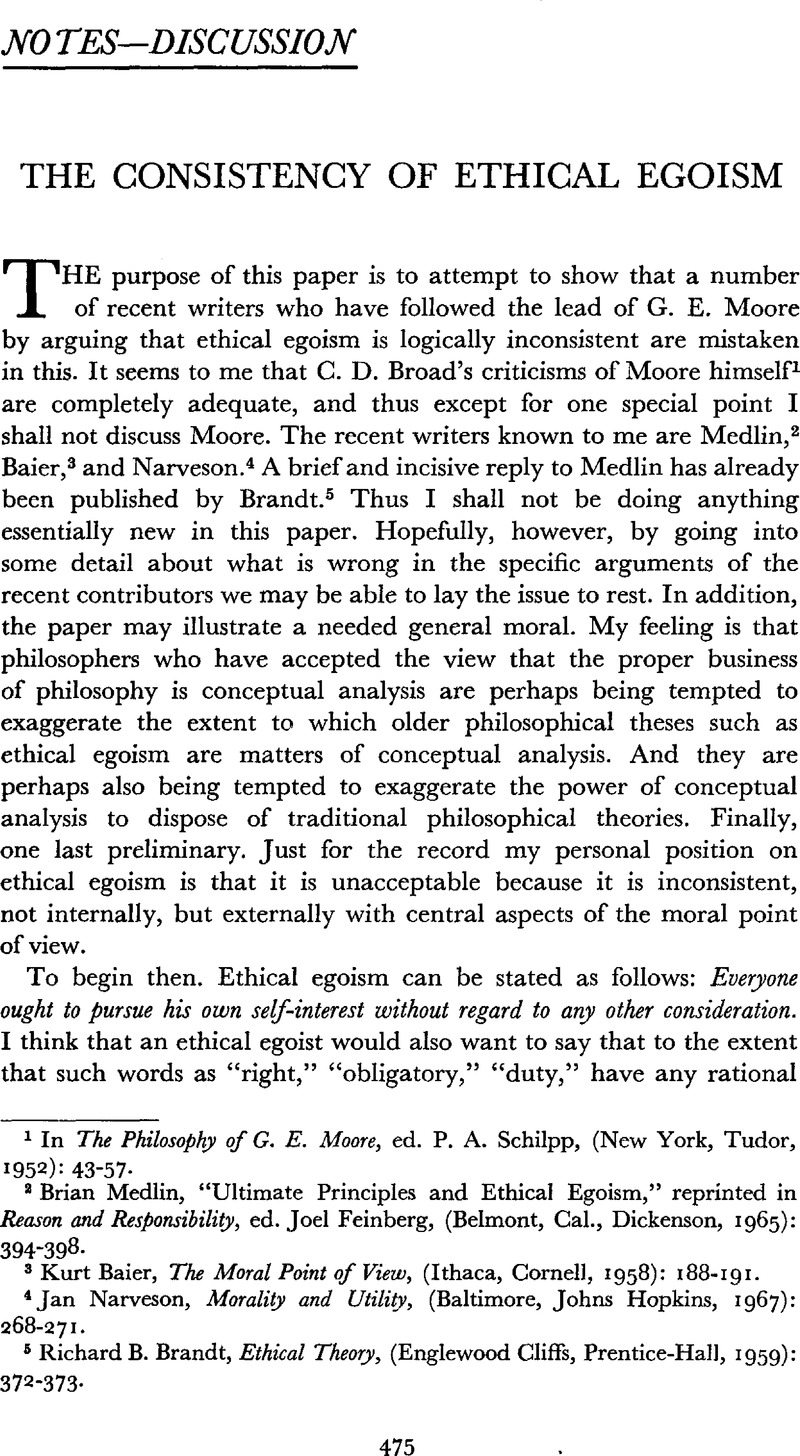No CrossRef data available.
Published online by Cambridge University Press: 01 December 1969

1 In The Philosophy of G. E. Moore, ed. Schilpp, P. A., (New York, Tudor, 1952): 43–57Google Scholar.
2 Medlin, Brian, “Ultimate Principles and Ethical Egoism,” reprinted in Reason and Responsibility, ed. Feinberg, Joel, (Belmont, Cal., Dickenson, 1965): 394–398Google Scholar.
3 Baier, Kurt, The Moral Point of View, (Ithaca, Cornell, 1958): 188–191Google Scholar.
4 Narveson, Jan, Morality and Utility, (Baltimore, Johns Hopkins, 1967): 268–271Google Scholar.
5 Brandt, Richard B., Ethical Theory, (Englewood Cliffs, Prentice-Hall, 1959): 372–373Google Scholar.
6 Baier, op. cit., 189-90.
7 Narveson, op. cit., 269.
8 Private discussions with Narveson have made it clear to me that this interpretation is not what he intended, although I feel it is a not unjustified way to construe the above quoted passage and the previous page in Morality and Utility. I gather that he would interpret ethical egoism as a teleological theory, while I admittedly treat it in this paper as a deontological theory.
9 Moore, Principia Ethica: 98-99, quoted by Narveson, op. cit., p. 269, wrote as follows: In what sense can a thing be good for me? It is obvious, if we reflect, that the only thing which can belong to me, which can be mine, is something which is good, and not the fact that it is good. When, therefore, I talk of anything I get as ‘my own good,’ I must mean either that the thing I get is good or that my possessing it is good. In both cases it is only the thing or the possession of it which is mine, and not the goodness of that thing or that possession. There is no longer any meaning in attaching the ‘my' to our predicate and saying: The possession of this by me is my good. Even if we interpret this by ‘My possession of this is what I think good' the same still holds: for what I think is that my possession of it is good simply; and, if I think rightly, then the truth is that my possession of it is good simply—not in any sense, my good; and if I think wrongly, it is not good at all …
10 Medlin, op. cit., p. 397.